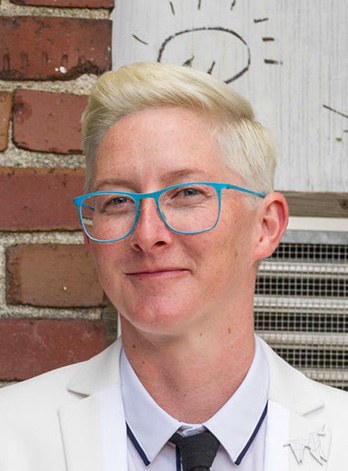
C. Libby
Assistant Professor of Women’s, Gender, and Sexuality Studies
(Spring 2025)
Premodern hagiographic and mystical literature is filled with tales of wondrous transformations: bodies exceed their normal capacities as they become impervious to the elements (rain, fire, snow) and exempt from natural laws (gravity, decay), souls undergo indescribable ecstatic raptures and unitive encounters with the divine, and saints experience fugacious and enduring shifts in sex and gender. Often lauded as paragons of religious piety and admired for their ability to transcend the confines of earthly existence, their commitment to excess and transformation just as frequently resulted in censure, persecution, and even death. Notwithstanding these risks, saints and mystics pursued a capacious vision of embodiment. With the advent of modern sexology, this vision was truncated as religious figures were redeployed as transhistorical exemplars in the development of rigid taxonomies of sex, gender, and sexual aberration.
My project, Engendering Feeling: Religious Affects, Transphobia, and Historicity, traces the impact of this interpretive shift through a wide range of trans antagonist literature to highlight how it has facilitated the affectively charged insistence on the rigid binary division of sex difference so prevalent today. By foregrounding historical Christian writing that attempted to describe and interpret transformative bodies such as the transvestite saint, the medieval mystic, the gender transitive sodomite, and the nonbinary androgyne, Engendering Feeling maps the logics and affective formations that continue to haunt trans bodies today. Paying particular attention to the ways religious writing shapes both historical and contemporary discourse around sex and gender, this project investigates how gender crossing bodies appear as sites of contestation and heightened affect across religious texts. Building on this insight, I argue that contemporary conceptions of sex and gender must be expanded to include trans identities, gender variance, and gender non-conforming persons.